- FROM THE TOP:
- Discover POLAR’s New Online Photo Gallery
- Budget 2019
- Arctic Council Protection of the Arctic Marine Environment (PAME)
- What’s in the Forecast?
- Translation at POLAR
- POLAR’S PEOPLE:
- Arctic Focus Video Series
- Agreement for Enhancing International Arctic Scientific Cooperation
- Women in Science and Technology Networking Breakfast
- LEARNING AND PERFORMANCE
- Indigenous Perspectives: Stories from Indigenous Public Servants
- Inuinnaqtun Word of the Week - Tunngahugit
- Are you ready to Talk the Talk?
- WORKPLACE NOTICES:
- The 2018-19 Fiscal Year-End is Fast Approaching
- Going to Cambridge Bay?
- Policy IGNITE!
- UPDATES:
- POLAR Events Calendar
- Key Outcomes from Senior Management Committee
FROM THE TOP:
Discover POLAR’s New Online Photo Gallery
Explore the Arctic and Antarctic – the land, the people, the CHARS campus, and our work advancing knowledge of the polar regions here.
POLAR’s photo gallery will not only expand public knowledge of our agency by drawing new visitors to our website, but it will also help position POLAR as a provider of high quality information on these regions.
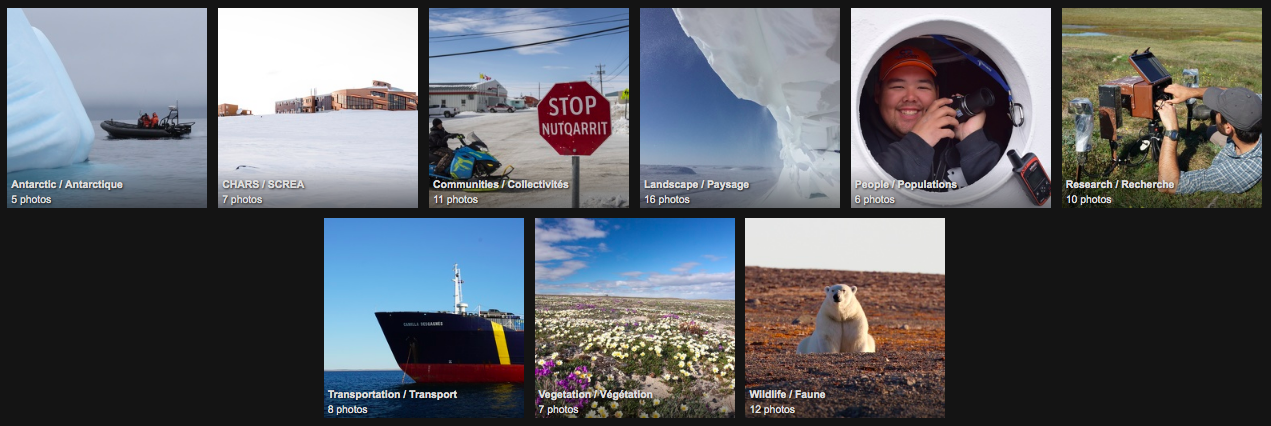
The gallery will also be a place where POLAR can put photos received from our grants and contributions recipients. The collection will grow over time as POLAR acquires new photos.
Do you have extraordinary photos of the Arctic or Antarctic? Send them to communications@polar.gc.ca.
Budget 2019
On March 19, 2019, the Government of Canada released Budget 2019, updating the fiscal framework and setting the policy agenda for the coming year. The overarching priority of the Government remains growing the middle class in an environment characterized by uncertainty about the future.
POLAR did not receive funding in this Budget – So why does the Budget matter?
There are a number of key policy pieces contained in the Budget that will help guide our work over the coming year. The annual Budgets, along with other key pieces, like the Speech from the Throne, not only outline the dollars and cents for public spending, but they also set the policy agenda – providing a high-level framework of federal priorities.
Most importantly for POLAR, the Budget speaks to policy-making and programming in the North, and new strategies to improve research in Canada.
Canada’s North:
Chapter 2: Section 4 – Building a Better Future for Canada’s North (p. 98) and Section 6 – Building Research Excellence in Canada (p. 121):
Budget 2019 announces more than $700 million over 10 years in new and focused funding to ensure that Arctic and northern communities can continue to grow and prosper. This includes new funding for more diversified post-secondary educational options in the territories, enhanced infrastructure resources to connect northern and remote communities, increased economic development programming, and more support to enable critical Arctic research.
- Our partner, the Polar Continental Shelf Program, received funding in Budget 2019. This funding will ensure that researchers in the North are supported to undertake their work and can access the equipment they need to do so. Additionally, both NRCan ($7.9 M over 5 yrs) and Environment and Climate Change Canada ($21.8 M over 5 yrs) received significant funding for Arctic research and infrastructure.
- Budget 2019 proposes to establish a new Strategic Science Fund. Under the Fund, a principles-based framework will be applied by an independent panel of experts, including scientists and innovators, who will provide advice for the consideration of the Government on approaches to allocating funding for third-party science and research organizations. Budget 2019 proposes to establish and operate the Strategic Science Fund starting in 2022–23.
Other Federal Budget highlights:
Other important considerations remain in skills and innovation. Last year, POLAR received many requests from central agencies and other departments to report on skills and innovation funding through our organization. We may now want to think differently about how POLAR supports innovation and creates opportunities for skills development.
Advancing Reconciliation remains a priority of this Government. Chapter 3 discusses everything from strengthening governance tools to improving services for children. Supporting Inuit priorities is noted on page 146 of the Budget, and is focused on education, suicide prevention, health and social services, and language revitalization projects. As an agency headquartered in Nunavut, reconciliation is an important principle guiding the work we do. POLAR also has legal obligations under the Nunavut Agreement. To support these principles and fulfill its legal obligations, POLAR has hired an Advisor on Article 23 implementation and will be updating its Inuit Employment Plan this year.
Want to learn more?
Beginning this spring, Melissa Bolster will be hosting “Lunch & Learn” sessions on #sillyservant #clubfed topics like:
- What is the Fiscal Framework?
- The role of Central Agencies
- The Budget, The Speech from the Throne and your day-to-day work
- The Estimates Cycle and Corporate/Parliamentary Reporting
- Memorandum to Cabinet (MCs), Treasury Board Submissions (TBSubs) and other #sillyservant #clubfed lingo
- Gender-Based Analysis (GBA+) and other Tools
These sessions will help answer burning questions you might have, like: “Why is Melissa asking me for all this stuff?” and “Why is Melissa sending me so many emails?”.
The objective of these sessions is to help you understand how the work you do every day connects to POLAR’s mandate. They will also help you understand your role and responsibility as public servants in policy development, program implementation and reporting.
Arctic Council Protection of the Arctic Marine Environment (PAME)
During March 19-20, POLAR welcomed over 20 delegates from Arctic States to the CHARS campus to participate in the Protection of Arctic Marine Environment (PAME) workshop. PAME, which is a Working Group of the Arctic Council, is currently chaired by Department of Fisheries and Oceans (DFO). POLAR was happy to partner with DFO to accommodate the workshop at CHARS campus as well as provide assistance in identifying local Indigenous participants.
This workshop was focused on discussing best practices for supporting Indigenous involvement and leadership in protection of the circumpolar Arctic Ocean. It is the last of a series of four Marine Protected Areas (MPA) workshops aimed to improve international coordination in MPA network planning.
Presentations at the workshop showcased a number of strides PAME has taken in developing tools for policy makers to use multiple quantitative inputs when delineating MPAs. However, gaps in engagement and the need for further inclusion of Indigenous Knowledge (IK) was evident. The Government of Canada (GoC) showcased successful community-based MPA work done by DFO that engaged early, worked collaboratively and shared information with communities working within the co-management structure. The GoC presentations highlighted that investing in work to build relationships with Indigenous organizations can set a foundation for progress on science objectives. Indeed, this sentiment was echoed by Arctic Council delegates from the Sami Council who advocated that taking time for coffee or tea with project partners would foster positive relationships.
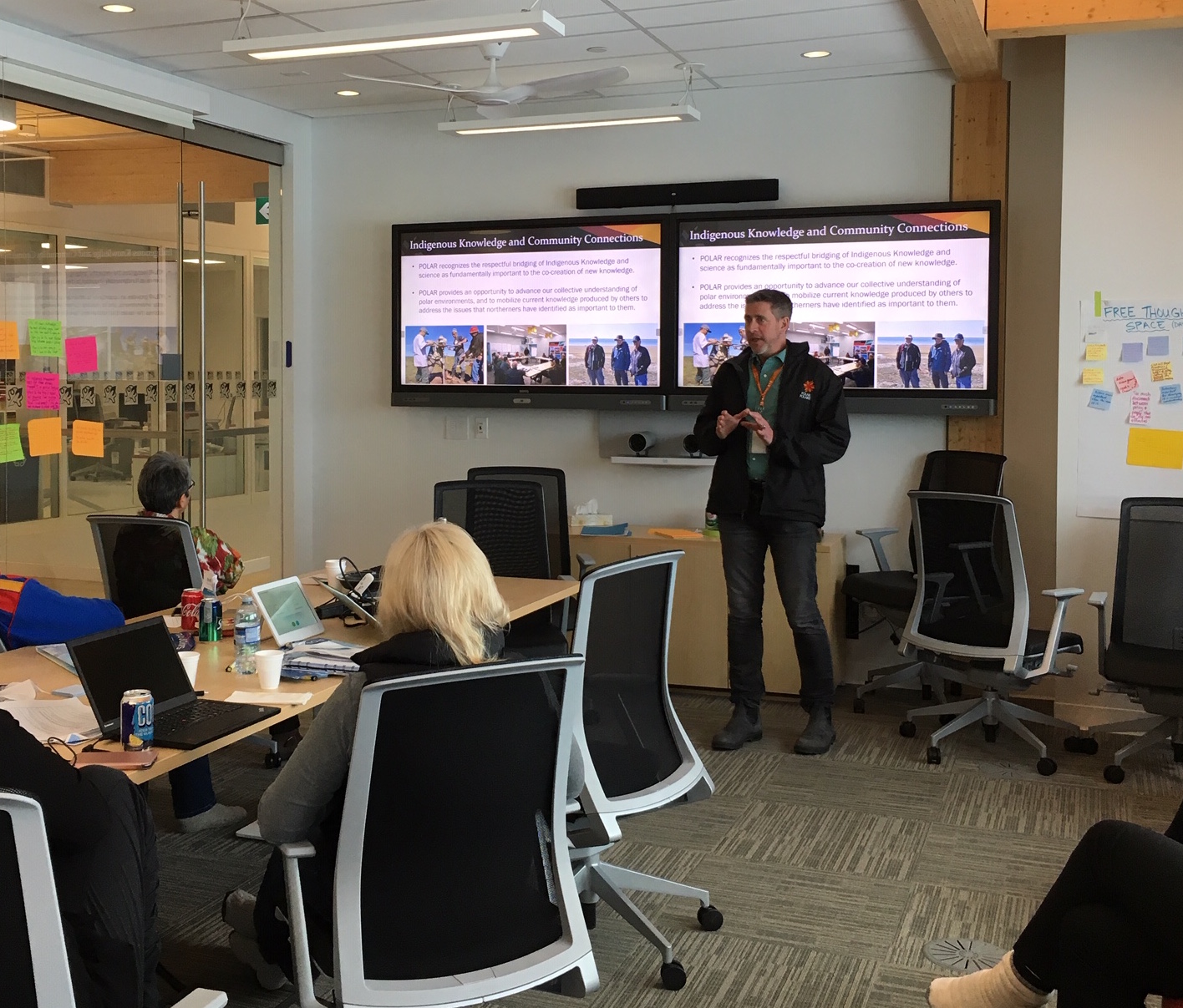
Take home messages included a general agreement that timelines that federal scientists and policy makers work on do not always coincide with timelines and resource restrictions Indigenous organizations face. It was suggested that the onus for inclusion of IK in science and policy should be on federal representatives initiating projects. It was also acknowledged inclusion of IK would necessitate timelines and budgets for science and policy processes that account for relationship building.
In recognition of POLARs efforts to provide space, triplex accommodations and provide support for increasing Indigenous participation, DFO provided POLAR’s Chief Scientist, Martin Raillard, a speaking opportunity to provide an overview of POLAR’s mandate, priorities as well as programs and services. The presentation was an opportunity to raise awareness of the important work of our agency in Canada’s Arctic among an international audience. The presentation generated a high level of interest amongst the delegates, and POLAR’s focus on respectfully including Indigenous knowledge was well received.
For additional information regarding content of the presentations during the workshop or to watch for the release of a workshop summary report please check PAME’s website.
What’s in the Forecast?
Start your day with daily weather predictions for Cambridge Bay and Ottawa on the main page of POLAR’s intranet site. Click on the name of each community to get the daily and weekly forecasts. These weather modules will help you better prepare for your trips to these communities.
POLAR staff will now have a better understanding of the weather-related challenges our colleagues are facing in Cambridge Bay, as well as in Ottawa and in a timely manner with the daily updates.
Catch a glimpse of the weather forecasts here.
Translation at POLAR
Per the Official Languages Act (OLA), which sets out broad principles with respect to official languages in the federal public service, POLAR ensures that documents and communications to Canadians (and public servants) are actively offered in both English and French.
To submit a document for translation, please send via email the documentation requiring translation, as well as the appropriate Director’s approval, to your team’s contact or admin if you are not sure who your contact is.
The Translation Bureau also offers linguistic services and tools that promote the use of both official languages (English and French). Learn more about these services here.
POLAR’S PEOPLE:
Arctic Focus Video Series
Arctic Focus—a collaborative, online platform where Arctic explorers, researchers and communities share stories of the Arctic—has developed a series of short videos about the research being done in the Canadian Arctic, the dangers of runaway climate change and what needs to be done to prevent its worst effects.
Listen to our colleague Donald McLennan on what needs to be done to prevent the worst effects of climate change.
- Video 1: Muskox Decline in the Canadian Arctic
- Video 2: The Arctic’s Methane Time Bomb
- Video 3: Arctic Lakes, Methane & Climate Change
- Video 4: Arctic Change and Extreme Weather
- Video 5: Climate Policy and the Role of Science
Videos can be found on Arctic Focus’ webpage.
Agreement for Enhancing International Arctic Scientific Cooperation
On March 11, our colleague Jeannette Menzies participated in the inaugural Meeting of the Parties of the Agreement for Enhancing International Arctic Scientific Cooperation in Helsinki, Finland. This gathering brought representatives from the eight Arctic States together to share their strategies on implementing the Agreement within their respective countries, assess challenges to scientific cooperation in the Arctic, and improve coordination between the Parties.
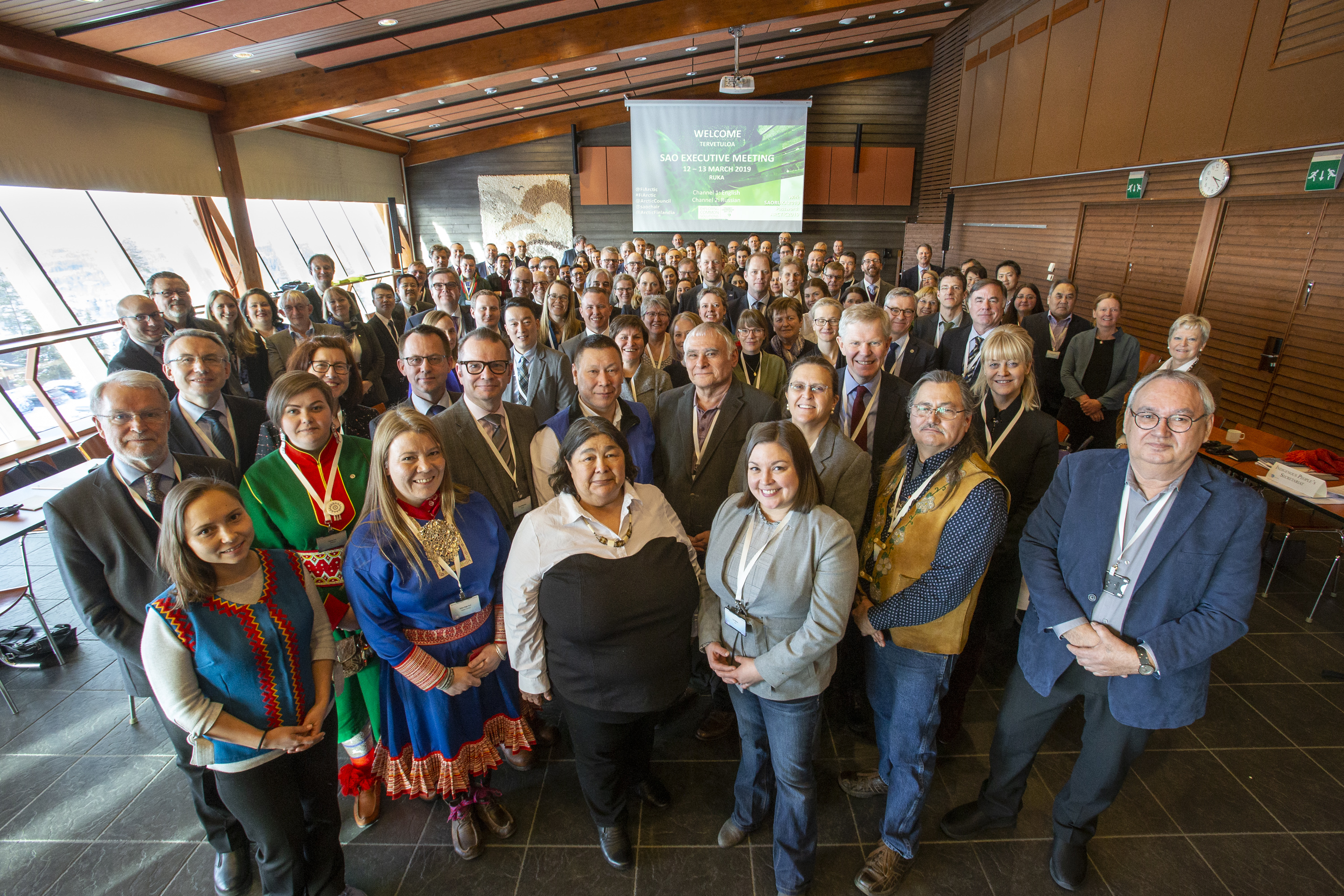
During Canada’s presentation at the Meeting of the Parties, Jeannette shared the resources POLAR has been developing under the Agreement, which are designed to inform and prepare researchers for work in Canada’s North. Additionally, photos of the CHARS campus were shared to encourage international researchers to partner with POLAR, and our efforts to support capacity building for northern and Indigenous organizations through the 2020-2023 Competitive Funding Process were highlighted.
Based on presentations from other Parties, Canada is taking a leading role in incorporating northern and Indigenous perspectives into its implementation strategy for the Agreement and, more broadly, its evolving northern research community. In the coming months, POLAR will engage with key domestic partners before making the resources for researchers publicly available. Stay tuned!
During her time in Finland, Jeannette also attended the Arctic Council Senior Arctic Officials meeting (photo) where outcomes of the Meeting of the Parties were presented.
Photo credit: Ministry of Foreign Affairs Finland/Kaisa Sirén
Women in Science and Technology Networking Breakfast
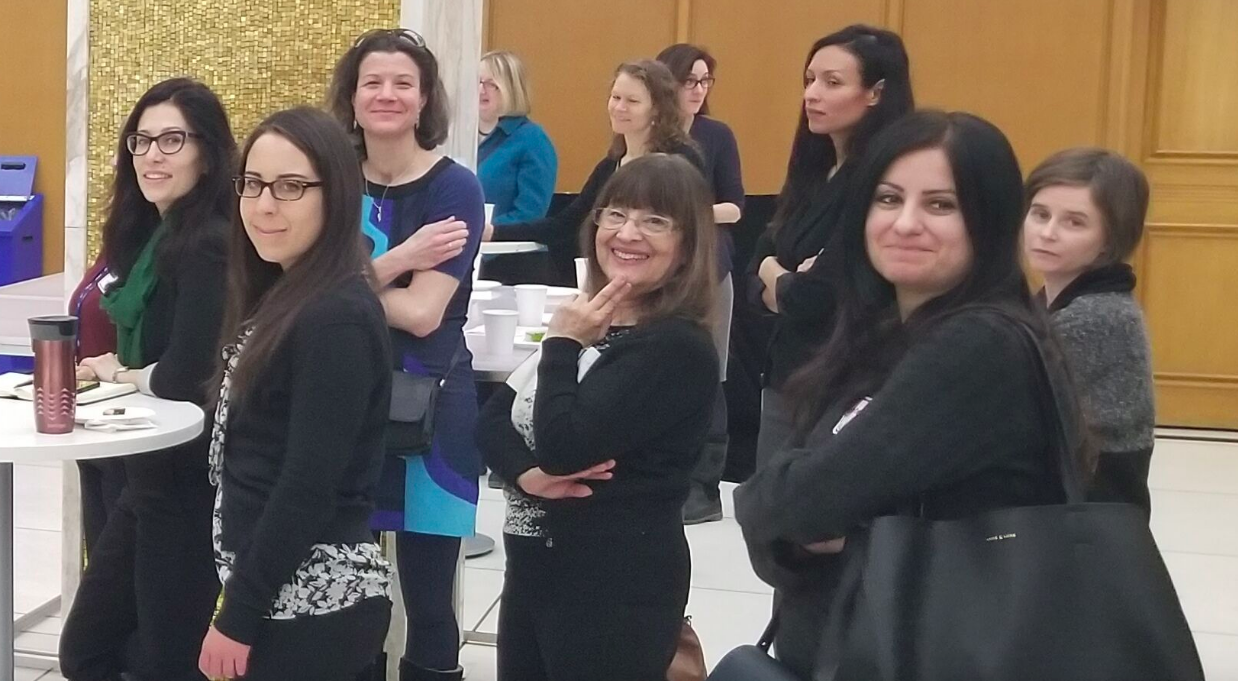
“It was one of the best discussions around women and science that I’ve been to, as the panel provided advice on real situations in the workforce”, said Jennifer of her participation in the annual Women in Science and Technology Networking Event (WIST2019) in Ottawa.
WIST2019 provided a forum for science and technology (S&T) professionals within and outside the Government of Canada to establish new connections and collaborations and learn from inspirational women in science, technology, engineering and mathematics (STEM) fields to inform career development.
Panelists included:
- Dr. Janet King - Associate Deputy Minister (Public Service and Procurement Canada) and Deputy Minister Champion for Science and Technology [and POLAR Board member];
- Dr. Donna Kirkwood - Chief Scientist (Natural Resources Canada);
- Nancy Hamzawi - Assistant Deputy Minister (Environment and Climate Change Canada); and
- Dr. Genevieve Tanguay - Vice President (National Research Council).
The dynamic speaker panel and engaged participants really made this year’s event shine. Inspiring advice was offered to women in attendance, including Nancy Hamzawi’s empowering words: “Overcome the inside voice that holds you back. When you are offered an opportunity TAKE THE RISK. Get out of your comfort zone. You can do it.”
LEARNING AND PERFORMANCE
Indigenous Perspectives: Stories from Indigenous Public Servants
The Government of Canada has emphasized the importance of our nation’s relationship with Indigenous Peoples and is deeply committed to working with provinces, territories, Indigenous communities and other vital partners in addressing the Truth and Reconciliation Commission (TRC) of Canada’s 94 Calls to Action.
In response to the TRC’s Call to Action, Employment and Social Development Canada has developed Indigenous Perspectives podcasts, demystifying what reconciliation is for individuals and what it can be for Canada. In their own words, public servants give voices to diverse experiences - and struggles - around what it means to be Indigenous.
Listen to this series of eight podcasts here.
Inuinnaqtun Word of the Week - Tunngahugit
The Inuktitut word of the week is tunngahugit. It means “welcome!”.
tunngahugit (when speaking to one person)
toong-nga-hoo-geet-teek
tungahugittik (when speaking to two people)
toong-nga-hoo-geet
tunngahugitti (when speaking to three or more people)
toong-nga-hoo-geet-tee
Listen to John Bennett’s pronunciation here.
Are you ready to Talk the Talk?
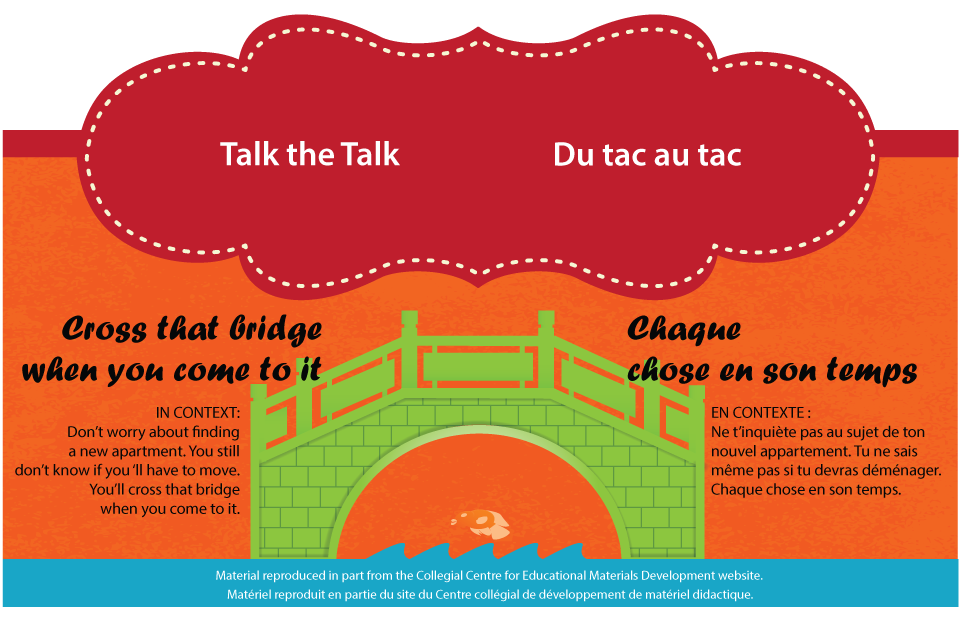
WORKPLACE NOTICES:
The 2018-19 Fiscal Year-End is Fast Approaching
With fiscal year-end fast approaching, POLAR would like to remind staff of some very important deadlines related to overtime, year-end performance reviews and travel-related expenditures.
| Item | Deadline | Have questions? Please contact: |
|---|---|---|
| Overtime requests for fiscal year 2018-19 | March 29, 2019 | HR_RH@polar.gc.ca |
| Travel claim and related expenditures | April 10, 2019 | finance@polar.gc.ca |
| Travel for trips overlapping two fiscal years where the majority of the trip is occurring in the new fiscal year (2019-2020) | After April 15, 2019 | finance@polar.gc.ca |
| Employee year-end performance assessments | April 30, 2019 | HR_RH@polar.gc.ca |
You will find all the necessary forms on POLAR’s intranet site, under the Forms section.
Going to Cambridge Bay?
Check out our new POLAR Accommodations form here! This form is for POLAR staff, contractors, and invited guests who have been approved to stay at the CHARS campus. It is also for visitors from other government departments, agencies, partner organizations who cannot otherwise find accommodations in Cambridge Bay. Requests are for accommodations only and dependent on availability.
Please submit this form as soon as your Travel Authority and Claim is approved and at least 10 days before your arrival in Cambridge Bay. For more information on this fillable form, please contact accommodation@polar.gc.ca
Policy IGNITE!
Do you have an idea to improve government – to simplify processes, eliminate obsolete technology, automate data entry, or just generally change how we work? Policy IGNITE! wants to hear it!
Policy IGNITE! is a grassroots event organized by volunteer federal public servants to showcase bright ideas in public policy development and implementation.
For the May 6, 2019 event, held in partnership with the Institute on Governance’s Future Forum event, Policy IGNITE! will explore “bureaucracy hacking” - the big and small changes that can result in significant innovations that help spark positive innovation and change in digital government.
Interested presenters can submit a proposal or a deck to policyignite@gmail.com by 11:59 p.m. Eastern time on April 7, 2019.
Click here for more information on Policy IGNITE!
UPDATES:
POLAR Events Calendar

You will find below the latest version of the POLAR events calendar, including upcoming events and conferences for your information.
Note: The calendar is subject to change. Any travel has to be pre-approved by Directors (and above for international destinations).
Please send any calendar updates or additions to Regienna by email at regienna.baggayan@polar.gc.ca and cc Amber McMachen at amber.mcmachen@polar.gc.ca.
POLAR events calendar: March 27, 2019
Key Outcomes from Senior Management Committee
Here are the key outcomes and decisions deriving from the March 20 Senior Management Committee meeting:
- The next all-staff meeting will be scheduled in April, and will include a debrief from the March 21-22, 2019 Board meeting. Senior Management obtained the following suggested topics from staff, which will also be covered during this meeting:
- Overview of the most significant initiatives, deliverables and events for POLAR over the next 6 months and associated timelines;
- 2019-20 Workplan and Budget – including content, what is expected, and what POLAR will not be doing;
- Priorities Update – seek feedback on what would be the most useful in terms of format/content going forward;
- Outcome of vision and values exercise;
- Outcomes of meetings/events and significance for POLAR; and,
- Future plans for the CHARS campus from an operational/custodianship perspective.
- A risk-based monitoring strategy for POLAR’s contribution funding agreements was presented to Senior Management. It seeks to streamline practices and reduce administrative burden for lower-risk contribution agreement recipients by ensuring that monitoring, reporting and auditing requirements are proportionate to risk.